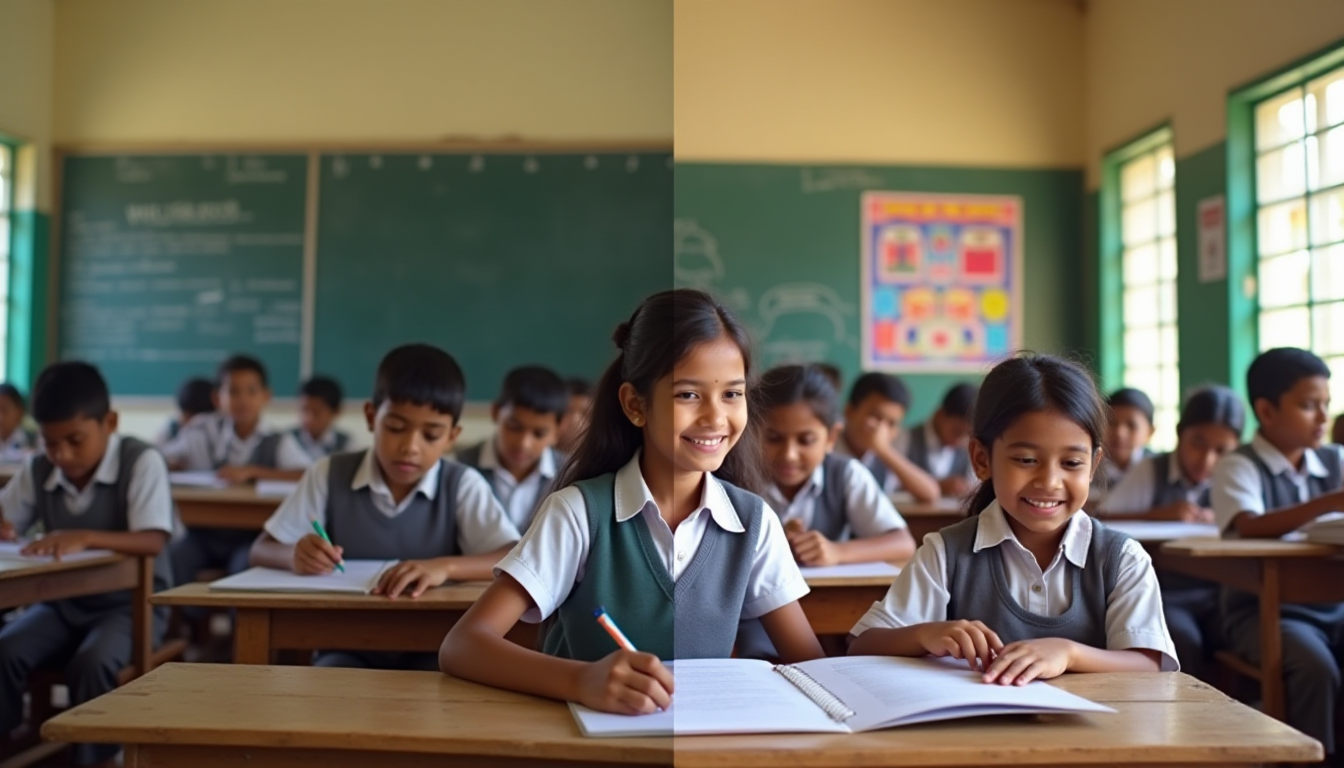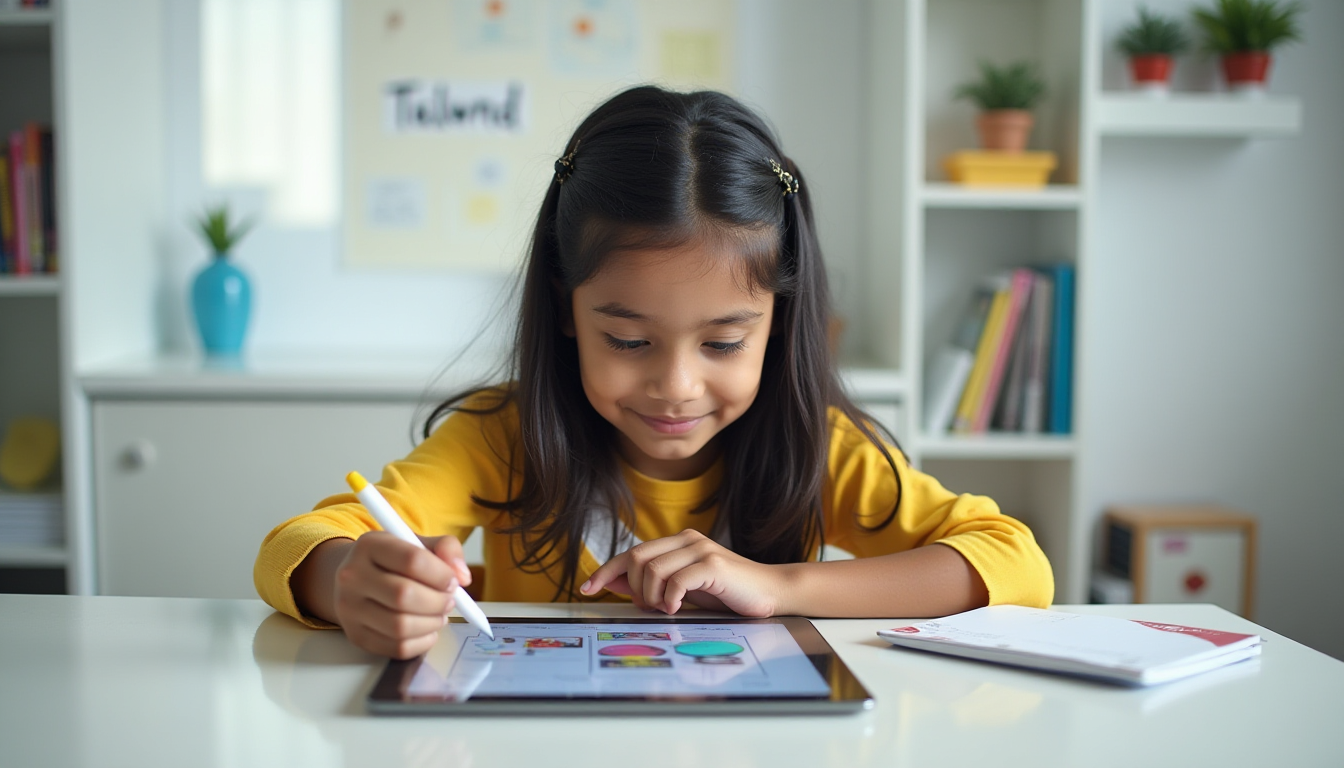🪙 Bharat’s Children Deserve More Than a Cold, Stale Buffet

Imagine walking into a restaurant where everyone is served the same plate of food, every single day. It doesn’t matter if you’re allergic to peanuts, prefer rice over bread, or just need something lighter that day—you get the same dish as everyone else. No questions asked. Now imagine this is how your child experiences learning, every day, year after year.
Welcome to the buffet-style education system we’ve accepted for too long.
📚 One Size Doesn’t Fit All—and Never Did
Every child is unique. They learn at their own pace, respond to different styles of teaching, and have passions and challenges that are deeply personal. But in our current model, they’re herded through the same curriculum, at the same pace, using the same methods, with little room for choice or voice.
This isn’t just outdated—it’s unfair.
We wouldn’t expect every patient in a hospital to get the same medicine, so why are we okay giving every child the same education?
🌱 A Future Where Learning Follows the Learner
What if learning looked more like a pick ‘n’ mix counter than a buffet line? What if families could select learning paths that truly matched their children’s needs, talents, and context?
We’re not saying abandon schools. We’re saying empower them. Allow schools, educators, and families to co-create learning journeys.
Here’s what that could look like:
- Blended Models: A bit of school, a bit of online, a project in the community—flexible by design.
- Passion-Focused Learning: Kids diving deep into music, design, math, farming, robotics—whatever fuels their fire.
- Local Context: Learning grounded in your own community’s culture, economy, and needs—not something blindly imported from a metro city.
- Portable Education Credits: Part of your government-funded education support follows the child. Families decide which mix of providers, platforms, and experiences suit them best.
⚠️ But Won’t This Be Messy?
Of course. Change always is. But it’s the right kind of mess—the creative, hopeful kind.
We’ll need to:
- Build local learning ecosystems
- Train Education Pathway Guides (imagine academic advisors who help you stitch together a learning path)
- Measure learning meaningfully—not just by marks, but by skill, effort, and progress
- Support underprivileged families with extra tools, funding, and mentoring
This is not about “school vs. no school.” It’s about options. About respecting that what works in South Delhi might not work in rural Bihar. What clicks for one learner might bore another. What helps one child fly might keep another grounded.
🇮🇳 Why Bharat Must Lead This Shift
Our country has always been diverse. Languages, food, culture, aspirations—we are a beautiful mosaic. So why expect our classrooms to be uniform?
This pick ‘n’ mix model is not a Western idea. It is deeply Indian. Gurukuls of the past offered personalised mentorship. Apprenticeships passed down skills. Learning was rooted in real life.
Now, with the tools of the 21st century—AI, online platforms, community hubs—we can return to that spirit with more reach and inclusivity than ever before.
🛤️ What Needs to Happen
Here are 5 practical steps to get us started:
- Pilot Projects: Run small trials where families can choose learning modules funded by part of their education budget.
- One-Stop Platforms: Help parents explore and combine learning options with transparency and guidance.
- Train Mentors: Build a cadre of education guides who support parents and students in designing their learning journeys.
- Incentivise Quality: Fund great learning experiences—whether they’re in schools, studios, farms, or digital spaces.
- Rethink Outcomes: Move beyond rote learning and standardised tests. Let’s track creativity, problem-solving, empathy, and real growth.
✨ A System That Works For Our Children
This isn’t about giving up on structure. It’s about giving up on rigidity. It’s about trusting our families and educators to make better choices when given the freedom and the tools to do so.
Bharat doesn’t need another imported reform. We need a re-imagination rooted in our own strengths, adapted to our realities, and powered by our dreams.
Let’s stop feeding our children the same stale dish and offer them the rich, varied thali of learning they deserve.
Because our kids aren’t just hungry for knowledge—they’re hungry for learning that matters.





